| Memories of Mark Graham, one of this country's greatest friends who reveled in Thailand's natural wonders but feared for their future. Sadly, his work went unfinished as he was killed in a plane crash in southern Thailand 20 years ago. A few weeks before Christmas 1998, a Thai Airways International Airbus A310-204 with a crew of 14 and 132 passengers left Don Muang on a domestic flight to Surat Thai airport but stalled and crashed in a rice field on its third attempt to land during bad weather with low visibility. Eleven crew members and 90 passengers lost their lives. Among the fatalities was Mark Graham, a British long-term resident who had devoted the last decade of his life exploring, photographing and writing about Thailand's pristine forests and its wildlife. IN this article, Mark’s daughter Fiona Tarini Graham remembers her father’s exceptional life – his schooling, family, work, extraordinary range of talents, and his unbridled passion for his adopted country. Ian Mark Seymour Graham, aka Mark, was born in Singapore to Jean Mathilda Graham shortly before WWII. My grandfather (Major Ian Seymour Graham) was posted to then British Malaya where the family lived. My grandfather was on a jungle reconnaissance in Java when the war broke out and captured by the Japanese from the word go. Not knowing his fate, my pregnant grandmother waited with my father for news until she was forced to take the last boat out of Singapore. It took two years to get back to the UK and my grandmother gave birth to Robert Graham OBE (Mark’s middle brother) in India en route. |
The women and children of my grandmother’s family spent the war at my grandmother’s family estate in Kent and were reunited with my grandfather after the war when Mark was eight years old. He recalls meeting a frail distinguished soldier off the train (my grandfather spent the war in a Japanese concentration camp in Japan and suffered from starvation and TB. He had seen Hiroshima go off and wrote in his diary “thank God the wind was blowing the other way!’
Mark’s youngest brother Dr Guy Graham was born soon after. My grandfather’s health meant that he could no longer serve in the army which led him to a career with ICI.
My father had a typical aristocratic education where children were groomed in manners, etiquette, basic reading, writing, nursery literature and general knowledge by nannies at home in their early years then sent away to boarding school, especially for those serving in the colonies. My father was the fourth generation born outside the UK (his father and grandfather, and great grandfather were Scottish colonial pioneers born in India & Burma).
However, his maternal heritage is French by way of the Seymour lineage and Norse Canadian by way of the Waylands, which my uncle Robert traced our line back to a legendary Nordic warrior from the 11th century. So at home French and English were the household languages with some Scottish Gaelic punctuation and later Italian - as my grandparents had a house on the Italian Riviera where the family spent their summers.
Mark along with his brothers Robert and Guy were sent to Fettes School in Edinburgh to connect with their Scottish roots. Mark was a rebel intellectual who did not like the linear approach of the traditional school system and did not do well academically. Instead he was known for his sporting prowess and athletic eloquence.
Fettes had a nine-hole golf course, which perhaps was where he learned to become a scratch golfer (a useful skill set during his later corporate years). Riding, rugby, cricket, squash, tennis, waterskiing, snow skiing, climbing and pretty much anything he attempted in sports saw him do so with passion and flare!
Mark’s youngest brother Dr Guy Graham was born soon after. My grandfather’s health meant that he could no longer serve in the army which led him to a career with ICI.
My father had a typical aristocratic education where children were groomed in manners, etiquette, basic reading, writing, nursery literature and general knowledge by nannies at home in their early years then sent away to boarding school, especially for those serving in the colonies. My father was the fourth generation born outside the UK (his father and grandfather, and great grandfather were Scottish colonial pioneers born in India & Burma).
However, his maternal heritage is French by way of the Seymour lineage and Norse Canadian by way of the Waylands, which my uncle Robert traced our line back to a legendary Nordic warrior from the 11th century. So at home French and English were the household languages with some Scottish Gaelic punctuation and later Italian - as my grandparents had a house on the Italian Riviera where the family spent their summers.
Mark along with his brothers Robert and Guy were sent to Fettes School in Edinburgh to connect with their Scottish roots. Mark was a rebel intellectual who did not like the linear approach of the traditional school system and did not do well academically. Instead he was known for his sporting prowess and athletic eloquence.
Fettes had a nine-hole golf course, which perhaps was where he learned to become a scratch golfer (a useful skill set during his later corporate years). Riding, rugby, cricket, squash, tennis, waterskiing, snow skiing, climbing and pretty much anything he attempted in sports saw him do so with passion and flare!
Mark loved the great outdoors.
My grandparents were also responsible for instilling this with traditions of hunting, shooting, fishing, walking etc. Being of aristocratic background the boys were also learned about wine, the skills of carving, calligraphy, an appreciation of art, history, artisanal craftsmanship, music and dance. The female lineage of our family were renowned embroiderers, knitters, lace and crochet aficionados.
As babies and children Mark and his brothers were always impeccably dressed in these beautiful creations. Perhaps this is where he got his artistic side from. Mark had a natural flare for art and calligraphy.
Mark did not attend university and instead went to Florence to study art at The Accademia di Belle Arti di Firenze. After graduating, he dutifully joined The Seaforth Highlanders a historic royal line infantry regiment of the British Army. He did not enjoy the service so much when he was sent to babysit Queen Elizabeth the Queen Mother.
He recounted with more vigour his time in the Malaya jungle when a mosquito bite on his upper thigh got infected causing his leg to swell up enough to be airlifted to a hospital where it was punctured. As children he loved to gross us out by telling us how ‘the puss hit the ceiling like a yellow custard fountain’ and how he was lucky to survive! This type of borderline humour was what he became known for. Mark was a great storyteller, a natural raconteur.
As much as he loved the great outdoors he was too much of an artist and free spirited romantic to be a soldier so he left the army and joined Saatchi & Saatchi in its early advertising heyday in London.
He shared a flat on Park Crescent off Regent’s Park with a friend whose father David Webster ran the Royal Opera House at the time. This was the heyday of Margot Fonteyn and Rudolf Nureyev and the emergence of modern dance in ballet. Mark loved music and dance with a passion, something he shared generously with us as children, especially me.
It used to frustrate him that he was good at neither, though he relished being a fan. This was also the swinging sixties in London, a time when jazz, the Beatles, Bob Marley, Rock and Roll was blossoming against the back drop the cold war and the war in Vietnam. His record collection was pretty awesome, with everything from Gregorian monks chanting to Gamelan to experimental jazz sessions with the greatest.
Given his extensive collection of books on war, history and biographies of the various global power protagonists of the 21st century, Mark still always maintained a fascination for world history and politics - or some say he was recruited away from The Seaforth Highlanders by MI5 and later the CIA, which moved him first to Hong Kong to work for Olgivy & Mather then on to Thailand during the same week that Jim Thompson disappeared.
My grandparents were also responsible for instilling this with traditions of hunting, shooting, fishing, walking etc. Being of aristocratic background the boys were also learned about wine, the skills of carving, calligraphy, an appreciation of art, history, artisanal craftsmanship, music and dance. The female lineage of our family were renowned embroiderers, knitters, lace and crochet aficionados.
As babies and children Mark and his brothers were always impeccably dressed in these beautiful creations. Perhaps this is where he got his artistic side from. Mark had a natural flare for art and calligraphy.
Mark did not attend university and instead went to Florence to study art at The Accademia di Belle Arti di Firenze. After graduating, he dutifully joined The Seaforth Highlanders a historic royal line infantry regiment of the British Army. He did not enjoy the service so much when he was sent to babysit Queen Elizabeth the Queen Mother.
He recounted with more vigour his time in the Malaya jungle when a mosquito bite on his upper thigh got infected causing his leg to swell up enough to be airlifted to a hospital where it was punctured. As children he loved to gross us out by telling us how ‘the puss hit the ceiling like a yellow custard fountain’ and how he was lucky to survive! This type of borderline humour was what he became known for. Mark was a great storyteller, a natural raconteur.
As much as he loved the great outdoors he was too much of an artist and free spirited romantic to be a soldier so he left the army and joined Saatchi & Saatchi in its early advertising heyday in London.
He shared a flat on Park Crescent off Regent’s Park with a friend whose father David Webster ran the Royal Opera House at the time. This was the heyday of Margot Fonteyn and Rudolf Nureyev and the emergence of modern dance in ballet. Mark loved music and dance with a passion, something he shared generously with us as children, especially me.
It used to frustrate him that he was good at neither, though he relished being a fan. This was also the swinging sixties in London, a time when jazz, the Beatles, Bob Marley, Rock and Roll was blossoming against the back drop the cold war and the war in Vietnam. His record collection was pretty awesome, with everything from Gregorian monks chanting to Gamelan to experimental jazz sessions with the greatest.
Given his extensive collection of books on war, history and biographies of the various global power protagonists of the 21st century, Mark still always maintained a fascination for world history and politics - or some say he was recruited away from The Seaforth Highlanders by MI5 and later the CIA, which moved him first to Hong Kong to work for Olgivy & Mather then on to Thailand during the same week that Jim Thompson disappeared.
Allure of Southeast Asia
There is also a personal story led by the heart of how he came to Thailand. Being Singapore-born, Southeast Asia was always an allure for Mark. Being a family of three boys they were often asked to attend sixth form dances of schools close to their family home. Apparently at one of these dances at Tudor Hall, Mark met and was enamored by a young Thai lady whom he later followed out to Bangkok. He turned up on her door step with flowers and a proposal but had the door slammed in his face by her non-negotiable father!
He stayed on in Bangkok anyway because he fell in love with Thailand. Later that year he met my mother Channipha Krabuanrat (the daughter of Saingmaad and Admiral Somboon Krabuanrat, the King’s private secretary for the Navy) at a party of mutual friends. Three months later he proposed and she accepted. However they did not get approval or the blessing of either parents who were strongly opposed to a bi-racial marriage and boycotted the wedding.
This moved some close Thai friends of Mark to informally adopt him and host their wedding in a beautiful Thai house in Bangkok. To manage the responsibilities of married life, he took on the unlikely job of Managing Director in Thailand for GD Searle, a massive US pharmaceutical company which in 1985 merged with Monsanto. At that point he became managing director for Asia & Australasia.
My parents entertained a lot and our house was an interesting crossroads of royalty, celebrities, academics, politicians, military, artists, eccentrics and commoners. Mark stayed in the job, which meant he travelled the world and wasn’t home much for many years - until he had a falling out with his then boss, Company President/CEO Donald Rumsfeld regarding company ethics and codes of moral conduct within the company and the pharmaceutical industry in general.
He resigned at the age of 50 and became a consultant and conservationist for the last seven year of his life. In those years, he wanted to do what he could to give back to a country that had given him so much.
In writing a book a year about Thailand’s nature and its cultural connections before he died, he reconnected with the land, its people and traditions. He created Oxbridge scholarships for Thai students to study environmental conservation, helped formalise and recognise the value and importance of national parks of Thailand, was involved in numerous plant biodiversity and conservation projects, especially for the Tiger - the top of the forest food chain that would ensure the natural balance of life.
All of this work meant travelling the length and breadth of Thailand meeting and working with people from top to bottom. He always said Thailand had an inexplicable seduction'.
There is also a personal story led by the heart of how he came to Thailand. Being Singapore-born, Southeast Asia was always an allure for Mark. Being a family of three boys they were often asked to attend sixth form dances of schools close to their family home. Apparently at one of these dances at Tudor Hall, Mark met and was enamored by a young Thai lady whom he later followed out to Bangkok. He turned up on her door step with flowers and a proposal but had the door slammed in his face by her non-negotiable father!
He stayed on in Bangkok anyway because he fell in love with Thailand. Later that year he met my mother Channipha Krabuanrat (the daughter of Saingmaad and Admiral Somboon Krabuanrat, the King’s private secretary for the Navy) at a party of mutual friends. Three months later he proposed and she accepted. However they did not get approval or the blessing of either parents who were strongly opposed to a bi-racial marriage and boycotted the wedding.
This moved some close Thai friends of Mark to informally adopt him and host their wedding in a beautiful Thai house in Bangkok. To manage the responsibilities of married life, he took on the unlikely job of Managing Director in Thailand for GD Searle, a massive US pharmaceutical company which in 1985 merged with Monsanto. At that point he became managing director for Asia & Australasia.
My parents entertained a lot and our house was an interesting crossroads of royalty, celebrities, academics, politicians, military, artists, eccentrics and commoners. Mark stayed in the job, which meant he travelled the world and wasn’t home much for many years - until he had a falling out with his then boss, Company President/CEO Donald Rumsfeld regarding company ethics and codes of moral conduct within the company and the pharmaceutical industry in general.
He resigned at the age of 50 and became a consultant and conservationist for the last seven year of his life. In those years, he wanted to do what he could to give back to a country that had given him so much.
In writing a book a year about Thailand’s nature and its cultural connections before he died, he reconnected with the land, its people and traditions. He created Oxbridge scholarships for Thai students to study environmental conservation, helped formalise and recognise the value and importance of national parks of Thailand, was involved in numerous plant biodiversity and conservation projects, especially for the Tiger - the top of the forest food chain that would ensure the natural balance of life.
All of this work meant travelling the length and breadth of Thailand meeting and working with people from top to bottom. He always said Thailand had an inexplicable seduction'.
| Family in Thailand My mother was one of seven children so my father inherited a large brood. As mentioned be also inherited an informal spiritual family many of whom were royals returning to Thailand from an English upbringing in exile. He went on to have two children - Fiona Tarini Graham and James Karin Graham with his wife Channipha. But sadly their marriage did not last and they divorced in the early 80s. Mark never re-married but as a single father he gained a tribe of young people like the pied piper. As a father he would take us on adventures to the beach or jungle almost every weekend and for the holidays we'd either be trekking across the Himalayas, abseiling limestone cliffs of The Andaman, staying up late to be part of ceremonial rituals in Bali or lying low in a jungle hideout in the hopes of seeing a wild tiger. Somehow, word got out and friends and family just dropped off their teenage children with us for the holidays. At its height we'd have to rent a coach we had so many kids! This is when he became known as Loong (uncle) Mark and later just Loong. He had this unique charm that often as we travelled throughout the country into remote forests or far away villages, led to people embracing him as their own. It was indeed part of Thai culture to be that way but it was also the kind of guy he WA, They called him 'pooyal Bann' in the outback. In the wake of the plane crash in which he died, it took four days of going through 101 bodies and body parts in order to find him. The moment of discovery and being re-united was profound and says a lot about how Thailand itself became part of his family. By day 4 we had got down to bodies that were unrecognisable. Ironically they looked more like burned tree trunks than human beings. Once we had found enough matches to identify him as our own the mortuary doctor asked me who my father was, I told him he was Mark Graham. In that moment something moved him to sink into his knees and tears welled up in his eyes as he clasped his hands in a wai. He said this man had done so much for Thai people more than most people who called themselves Thai. He expressed his honour to be present at his death and to be handling his body. This gave perspective on how well Mark understood the nature of the family nation of Siam that was being threatened alongside its nature. |
|
The fatal air crash In December 1998, Mark was working with Discovery on a documentary series for the millennium titled "The Last Living Edens'. He was one of the key consultants for Thailand. The crew had split into two parts. One had gone south to Krabi and the other were with Mark in Kao Yai. They were due to meet up and join my brother, my daughter and me with our adopted Sea gypsy family to film the wild life in Trang. On Friday, December 11, the tech crew packed up a van in Kao Yal and travelled with the equipment by road to Krabi, while my father drove himself, the sound man 'Chip and his wife to Don Muaeng airport, where they boarded a late afternoon domestic flight to Surat Thani. He bumped in to 'Shrimp' Patrick Gauvain, a very distant cousin, who was the last person he knew to see him alive. Mark hated flying as he had spent too his business life on planes, and would normally have opted to go by road. That day there was a high profile wedding in Surat Thani, with a local MP's daughter marrying a celebrity. So there were many prominent people on this flight heading to the wedding with press waiting at Surat Thani airport. The crazy thing is, my brother and I did not know he was on this flight, We were in a remote village with one TV some distance from where we were staying. The crew in Krabi had sent a car to pick up Mark, Chip and his wife from Surat to bring them to Krabi that evening. As far as I know, there was a freak storm as the plane was about to land. The lights on the runway were broken and visibility was very poor. The pilot attempted two landings unsuccessfully. There are many stories about what allegedly happened next. One was the pilot had requested to land in Phuket or return to Bangkok Two, a high profile MP was in the cockpit forcing the pilot to land so that he would make it on time as a VIP guest for the wedding. Another story has my father walking up to the cockpit, opening the door and saying "turn the fxxxxxx plane back to Bangkok." Apparently that was the moment they were attempting a third landing and almost hit the control tower. The pilot panicked, pulled the plane up and stalled it. The plane fell on its tall broke in half and about 30 people who were sitting in the middle ran away from the wreck before it exploded. A lot of this was on live TV. There was a famous photo of James, a Thai pop star walking away in his boxershorts with a V sign, unaware that he had broken almost every bone in his body! The rescue mission was a complete shambles - my father was involved in a mis-identification scenario which would have probably amused him. Sadly, that Christmas was going to be special one for our family as it was the first time his youngest brother Guy and his family would visit Mark in Thailand in the 30 years he had lived there. Tragically, Mark died a week before they arrived so his first trip was to come to his brother's funeral instead. Even though his death shook us to the core and not a day goes by where we don't miss him deeply, in some ways he had a bit of a James Dean death. He always said, "I want to go fast and quick preferably as if mon some fantastic high" so he kind of got what he wished for. He would have been a frustrated old man if he couldn't keep on at the pace he was used to. He had terrible gout and arthritis and I think he would have suffered a lot. So in a way it was a blessing. Mark, my father, achieved so much in his half a century but his most heartfelt self-expression came in his last seven years! |
Animal lover
Mark loved horses, tigers and dogs - animals in general really. He would even let mosquitoes bite him, get malaria once or twice a year and say "well they have to eat." His brother Robert always stands amazed that his older brother turned out this way because he remembers him as the kid that burnt ants with the heat of the sun through a magnifying glass and dripped bot wax on them! Mark recognized the profound effect wood has had on the development of Thailand as a nation, including the Royal barges, Photos from the book That Wood by Mark Graham, reproduced here from Thailand Indochina Traveller in one of his many collaborations with the magazine and editor Colin Hastings. His horse was named Sterling, he was a beautiful thoroughbred, the only stallion allowed to be kept at the Royal Bangkok Polo Club! Mark rode pretty much every day of his life either to start the day or end it He also always had dogs. In Thailand he always had Thai dogs. His last fury friend was 'Lamyai', who slept on his bed even after he died. Nature and wildlife
I think he always loved the outdoors. The way he travelled, he was like the last of the great adventurers - always looking for the path less travelled or ideally places which were so wild he had to find his own path. I think he loved that sense of being utterly present to life and having to read nature's signs, feel her spirit and even fear it in order to survive or find your way. He appreciated beauty, natural beauty in relation to life and he felt inspired and invigorated to be in it or surrounded by it. He had a respect and appreciation that nature was the source of a healthy existence, that trees were the other half of our lungs. Towards the end of his life, he would pick a rucksack with water, a flask of coffee, salarni cheese, bread, a good book & a hammock, then wander into the forest for several days. I would ask him if he ever got scared. He'd say "no, the tigers are my friends." I think his love of nature and wildlife as a conservationist came as a result of seeing these wild worlds be loved, that beauty, that majesty. that soul nourishing, life giving environment, that natural order, that magical wonderment and biodiversity brutally destroyed and disappear before his eyes. Writing and photographing The Vanish Flora & Fauna of Thailand was a big turning point for him. I think he discovered just how much natural treasure and how precious, vital and empowering that connection to nature was for a human being, and that this connection may be related to Siam's unique culture and position in world history. I think he loved that sense of being utterly present to life and having to read nature's signs, feel her spirit and even fear it in order to survive or find your way. He appreciated beauty, natural beauty in relation to life and he felt inspired and invigorated to be in it or surrounded by it. He had a respect and appreciation that nature was the source of a healthy existence, that trees were the other half of our lungs. Towards the end of his life, he would pick a rucksack with water, a flask of coffee, salarni cheese, bread, a good book & a hammock, then wander into the forest for several days. I would ask him if he ever got scared. He'd say "no, the tigers are my friends." I think his love of nature and wildlife as a conservationist came as a result of seeing these wild worlds be loved, that beauty, that majesty. that soul nourishing, life giving environment, that natural order, that magical wonderment and biodiversity brutally destroyed and disappear before his eyes. Writing and photographing The Vanish Flora & Fauna of Thailand was a big turning point for him. I think he discovered just how much natural treasure and how precious, vital and empowering that connection to nature was for a human being, and that this connection may be related to Siam's unique culture and position in world history. Mark felt the need to do something for the children and our children's children to come...for he really believed Thailand was one of the last living Edens on earth and he could see that those who held and abused their positions of power, out to make a fast buck had no idea of her true wealth. For speaking out about this, I think he sometimes paid the price but I don't think he could have done it any differently. Mark wrote seven books, one a year from the age of 50-57 when he died. |
How friends remember Mark
|
Dr Chirayu Isarangkun Na Ayuthaya “In the early 1970s, the Royal Bangkok Sports Club was a great centre for those of us who enjoyed sporting activities. Mark was a good squash player who I enjoyed played against more than once a week. We also had great conversations about the Bangkok scene as well. ªOur acquaintance served us well when I went to work for the Crown Property Bureau in the 1990s. We had two successful projects together. The first was a publication of ªThe King of Thailand in World Focus,º which Mark initiated and I was able to give some support. ªThe second project was the expansion of the Bangkok Nursing Home. I still recall Mark telling me eloquently about the role of His Majesty Rama V1 in supporting the BNH at its beginning and therefore that the Crown Property Bureau should continue that support. “So I remember Mark for his great athleticism as well as his untiring effort to initiate good social projects that good Englishmen like to do” |
Belinda Stewart-Cox OBE is Head of Conservation at the Elephant Family “I must have met Mark soon after I first arrived in Thailand in 1986 on one of my infrequent visits from Huai Kha Khaeng to Bangkok. I can't remember how we met, or through whom, but our shared interest in the natural world must have brought us together. We also shared similarly awful memories of boarding school in the UK and revelatory experiences in Thailand. “I remember his succinct and pithy portrayals of people _ always kindly, humorous and forgiving _ and his generous and warm hospitality. In the same way that I wonder how much more my colleague and companion Seub Nakhasathien (a Thai conservationist, who died in 1990) might have achieved had he lived longer, so I wonder what else Mark might have done with his talents had he not been killed. He had the spirit and soul of an artist and was, in fact, a skilled painter. “The weekend before he died, on another fleeting visit of mine, he gave me a picture of his that I admired _ a one-armed stone Buddha, serenely untroubled by the loss of a limb. Mark was also philosophical about life but I suspect he felt much more than he ever let on. How rewarding it would be now to camp out with him in the forest and reminisce. What laughs, what insights. If only it were possible.” |
|
Colin Hastings, Publisher of The BigChilli “I first got to know Mark through our mutual love of sport, especially squash. We played regularly, and he always made it fun rather than competitive, often resorting to highly imaginative gamesmanship which I found very amusing. To me, Mark was the consummate Englishman overseas, a credit to both his home country and his adopted home. We worked on several magazine projects together, including beautiful features on this nation's incredible natural resources in Thailand and Indochina Traveller in the late 1980s, as well as an interview with Thailand Tatler during my editorship 1991-98. Below is an extract from that interview: “This was a country endowed with great natural wealth, where people never had to worry about where water, wood and food were coming from. Then, suddenly, there was an exponential increase in population, incipient industrialisation, and people just took and took, not considering there might not be an endless basket of goodies. When I came here, forest cover was about 60 per cent - it's now no more than 20 per cent. The population was about 27 million, now it's 60 million. In a sense, that tells you the whole story. “You just have to be positive. This is all part of the rhythm of life, it doesn't always go up, and Thailand is going to have to look for creative solutions. Every person is going to have to look in the mirror and see where the faults lie -to return to a slightly more cohesive society not based entirely on money.” |
Denis Gray, former Bangkok Bureau Chief of Associated Press “Mark was my friend and also neighbor for many years. He was one of the first foreigners I met when I arrived in Bangkok in the mid-1970s and of course we knew each other until his tragic death, an air crash the cause of which still remains very murky with many feeling that authorities have not come clean on what really happened and probably never will. “To me, Mark in many ways exemplified the ideal Brit -- well-educated, well-mannered, deeply curious, with a fine sense of humor (sometimes at his own expense), not to mention his good looks. But I believe that Mark felt that he had not chosen his true course through life, although he made up for it in his final years. A successful businessman to be sure, but his heart was not in offices and boardrooms but out in the forests and mountains. “One of the most memorable outdoor experiences of my life was the trek we took together, along with several other Bangkokians, to the foot of Mt. Kanchenjunga in Sikkim. He reveled in the pristine, remote places we trudged through, and his enthusiasm was so contagious. “Later, we collaborated on a rather successful book on Thailand's national parks through which he gained a deep knowledge and love of Thailand's wildlife and natural environment, a knowledge mingled with considerable despair over the mindless destruction, greed and corruption that was, and still is, taking place. He would have raged at the recent shooting of the black leopard in Thung Yai Naresuan WIldlife Sanctuary, a place he loved. ªMark wrote or contributed to other books and amassed a large collection of wildlife photography which are part of his legacy although I fear that his photo archive was not well taken care of after his death. One hopes that his work and passion for Thailand's wildlife did not vanish with his untimely death.” |

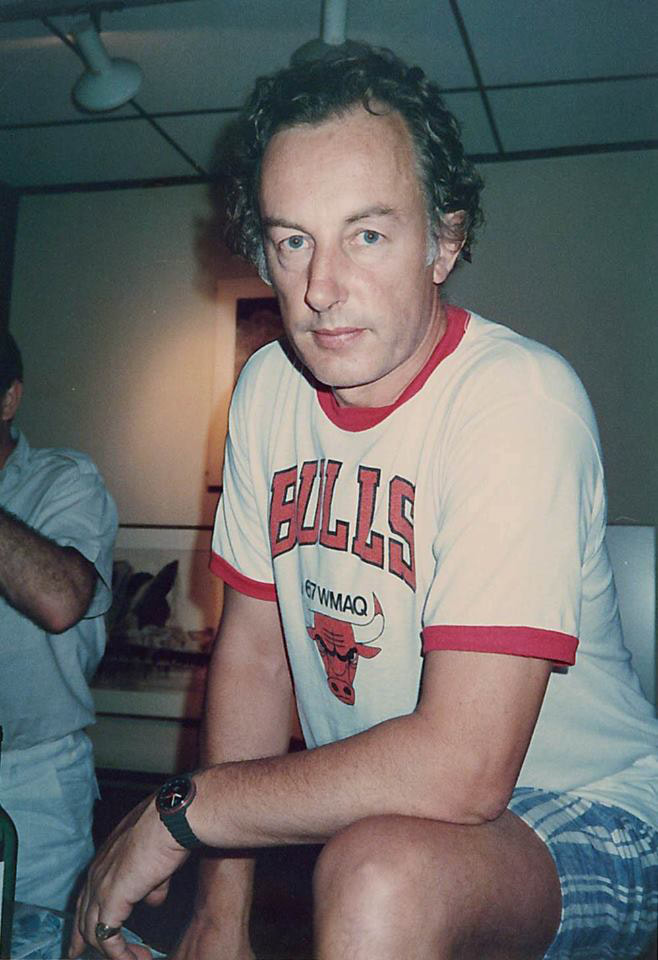
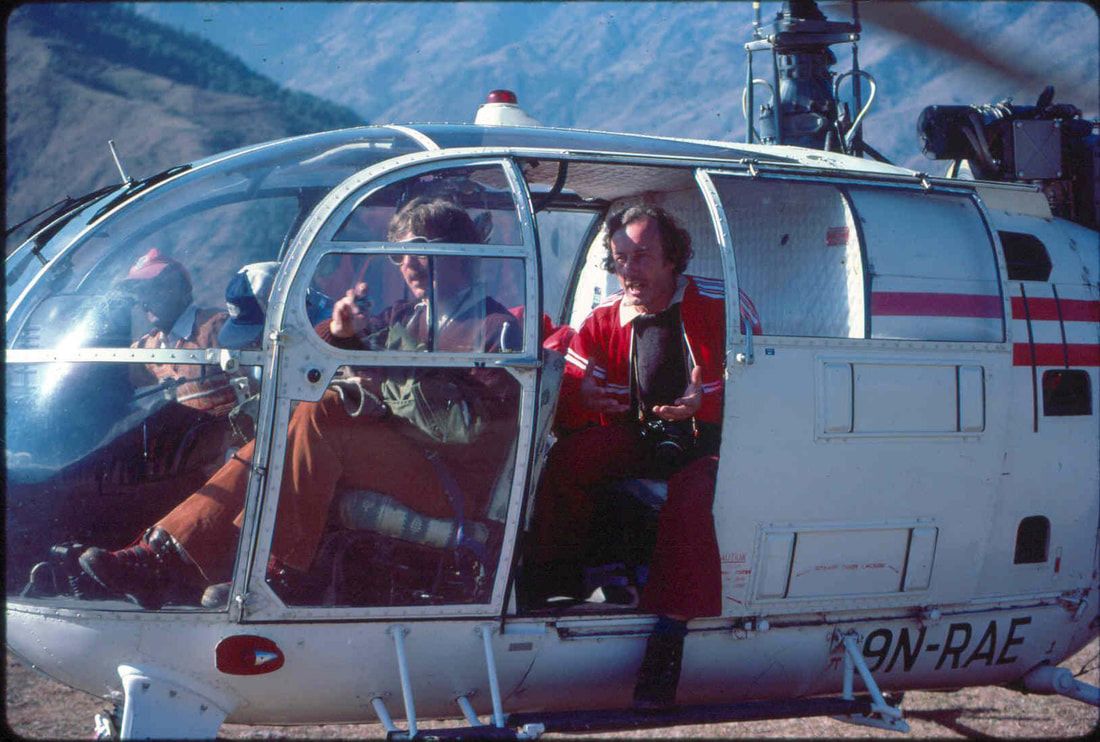
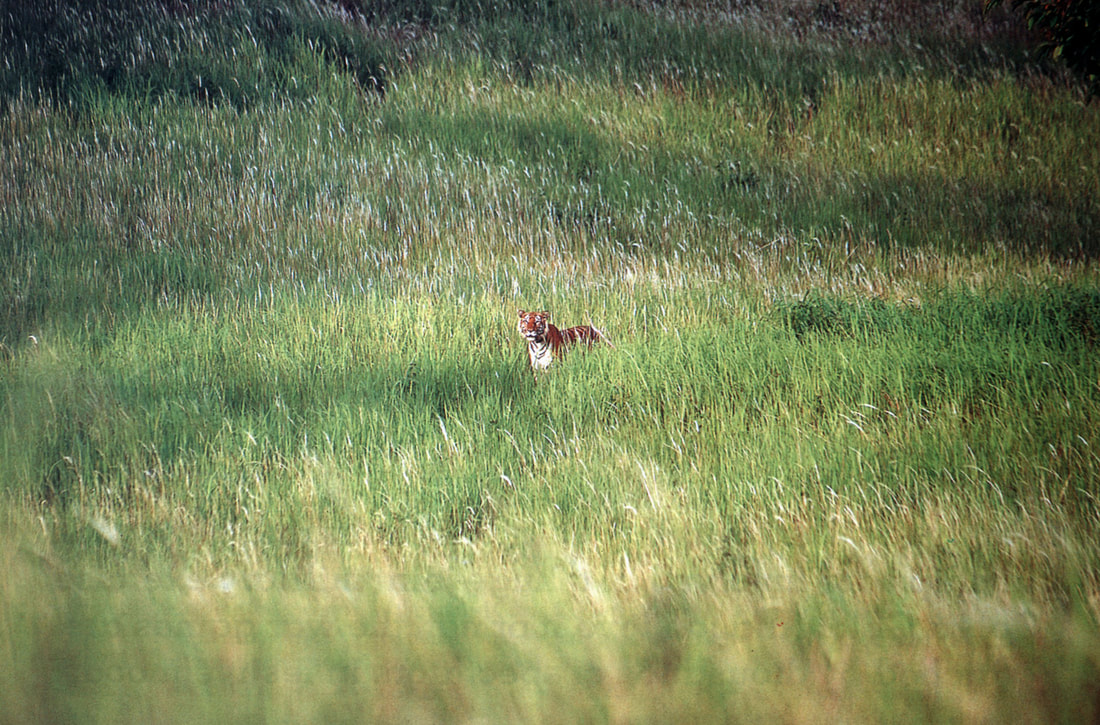
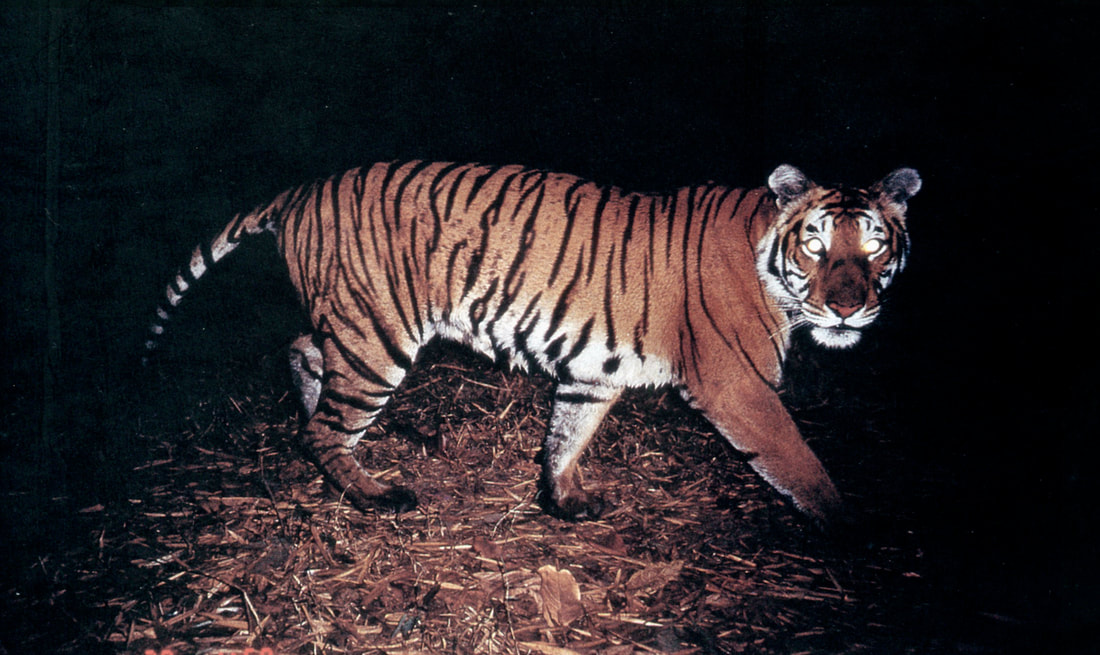
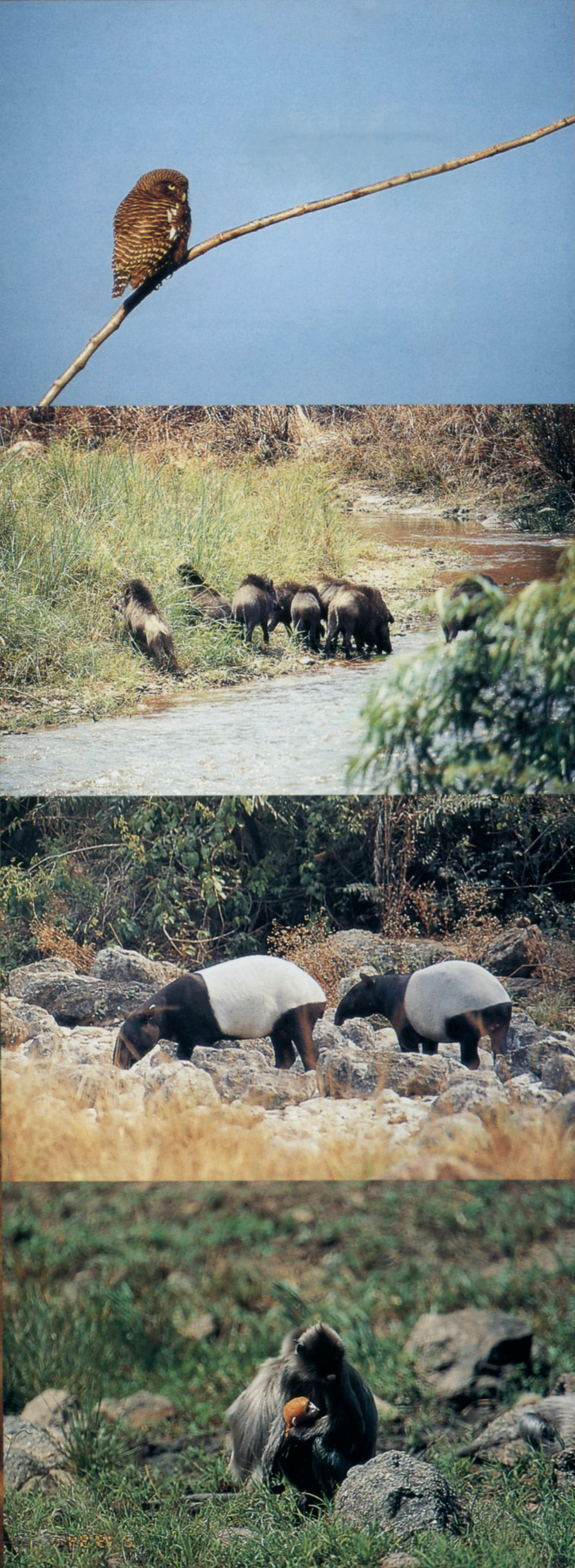
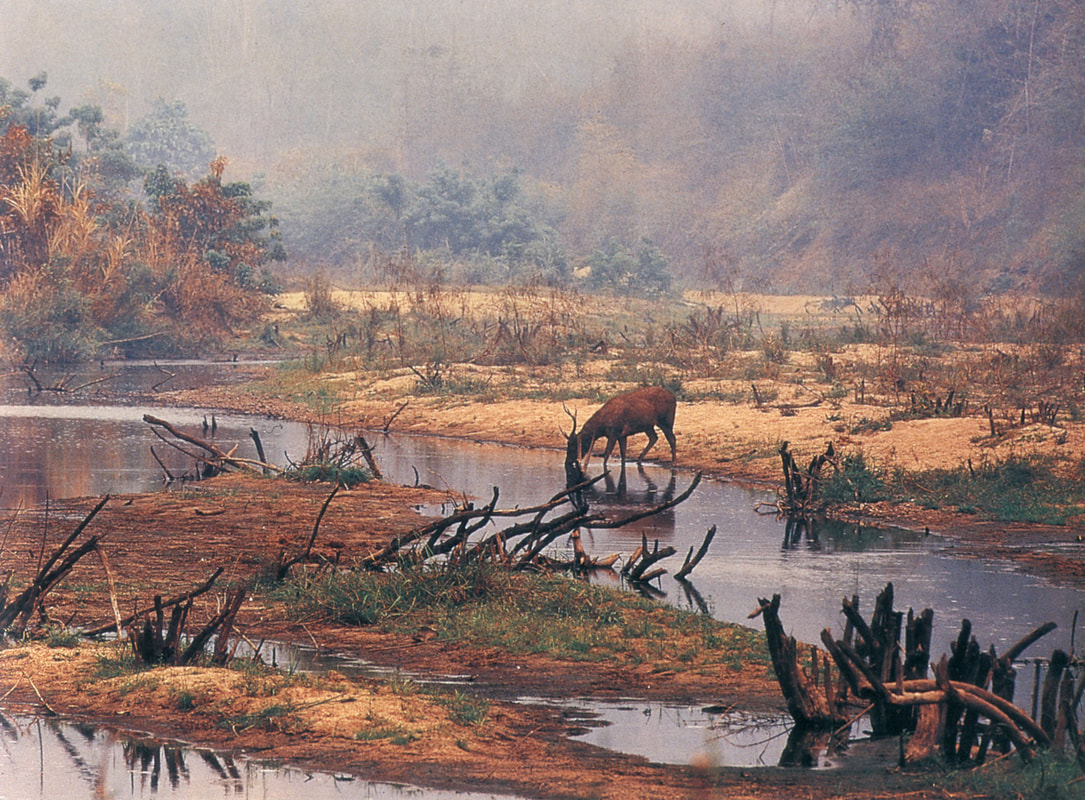
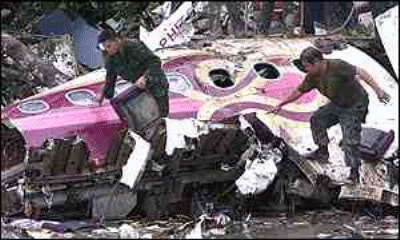
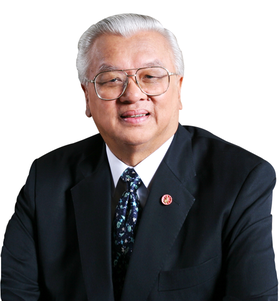
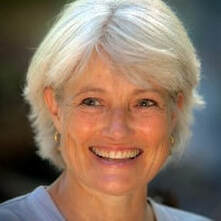
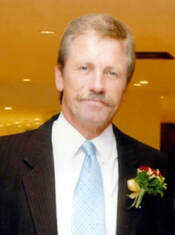
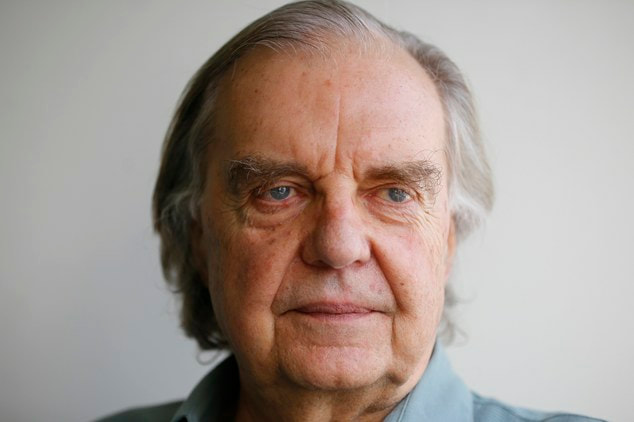
 RSS Feed
RSS Feed
















